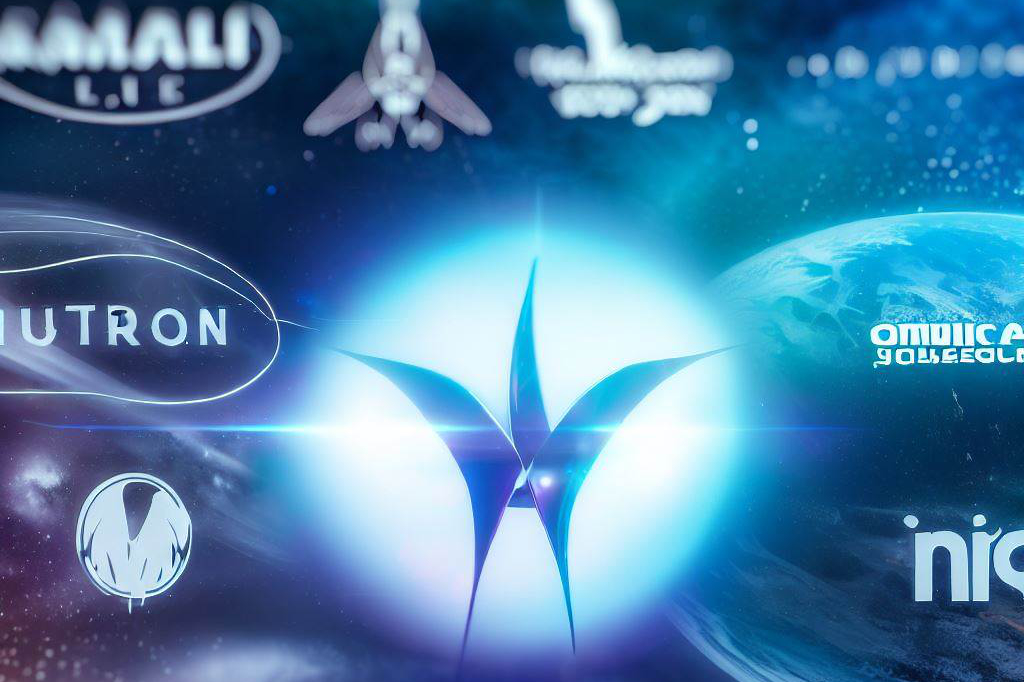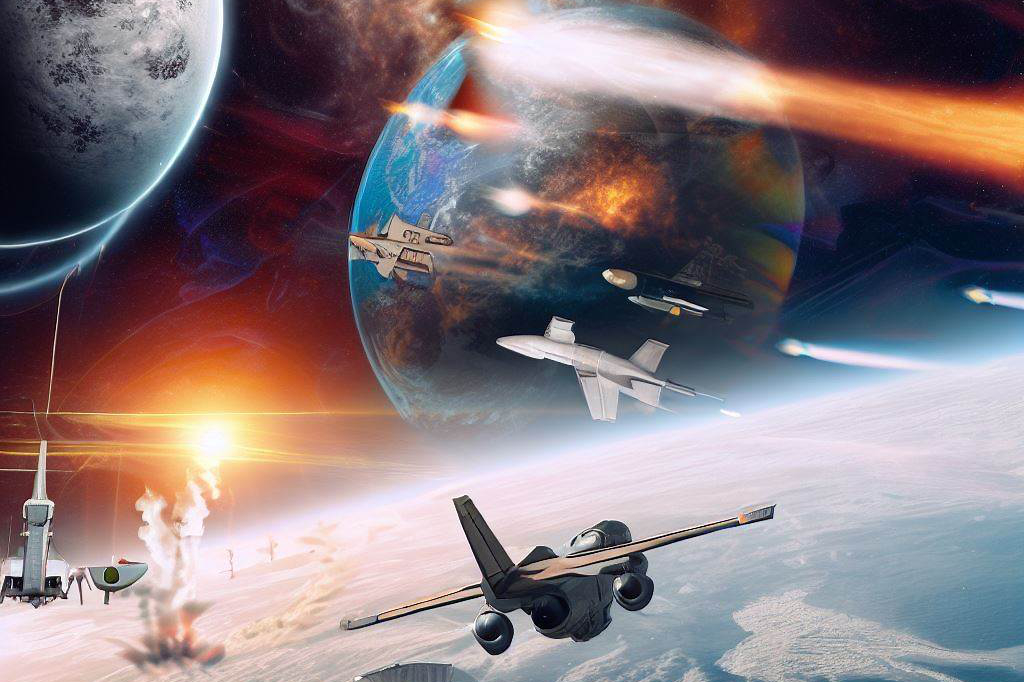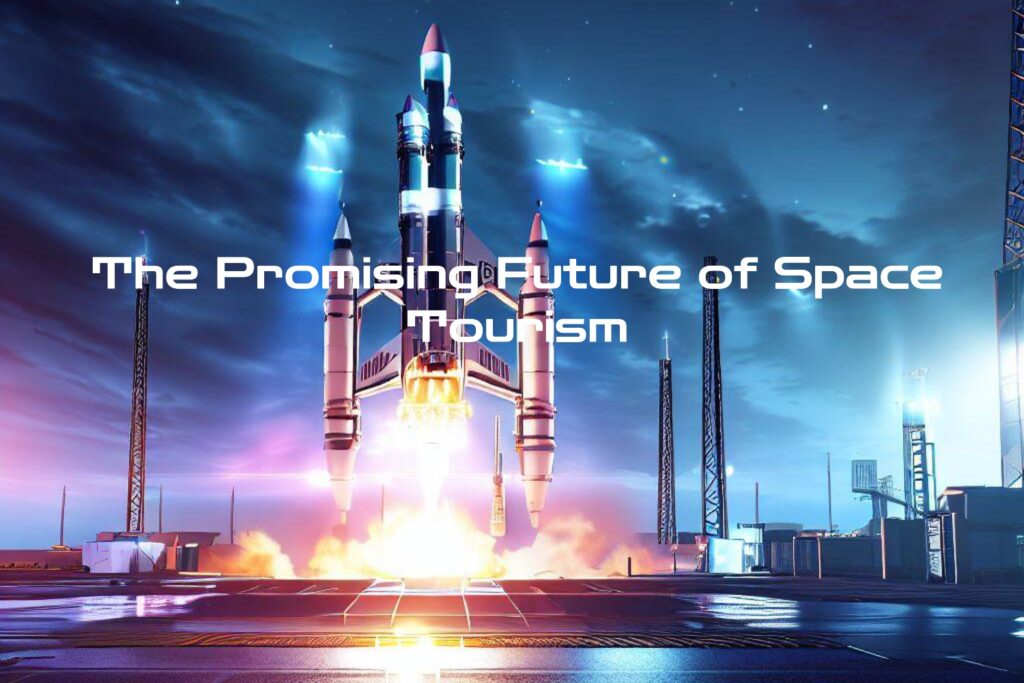The Final Frontier: The Future of Space Tourism
A Brief Overview of Space Tourism
Space tourism, or private spaceflight, refers to the experience of civilians traveling into space. Since 2001, the public has been able to purchase tickets for suborbital flights, and in recent years, companies have begun offering longer orbital flights. As of now, only a small handful of individuals have had the opportunity to venture beyond our planet’s atmosphere, but as technology advances and prices become more affordable, it seems likely that this will change.
While NASA has traditionally led the way in human space exploration, private space companies such as SpaceX and Virgin Galactic are pioneering the field of space tourism. These companies aim to make space travel accessible to a wider range of people and create new economic opportunities for industries related to aerospace engineering.
The Importance of the Space Tourism

Despite still being in its infancy as an industry, space tourism is already having a profound impact on how we think about human exploration and commercial activities beyond our planet. This industry has generated excitement among those who dream about going into outer space or even living there someday.
It also raises important questions about safety regulations, environmental impacts, and access rights that need careful consideration. As we continue to push boundaries and explore what lies beyond Earth’s atmosphere, understanding the implications for both human society and our environment is crucial.
We must ask ourselves whether this new frontier should be reserved only for a select few or whether it should be made available to everyone. The future viability of this fledgling industry depends on striking a balance between accessibility and sustainability.
With technological advancements driving growth in space tourism, it seems clear that we are on the cusp of a new era in human history – one where civilians can go into space whenever they wish! As exciting as this may be for some people, there are still many challenges ahead that we must address as we seek to make space travel accessible to all.
The Current State of Space Tourism
The Growing Number of Companies Offering Space Tourism Experiences

Space tourism has come a long way from its early beginnings as the purview of professional astronauts and a few wealthy individuals. Today, there are multiple companies worldwide that offer some form of space tourism experience.
These include Blue Origin, Virgin Galactic, SpaceX, and more. Each company offers unique experiences that cater to different types of consumers.
Types of Experiences Available
Space tourism is not limited to just one type of experience. Suborbital flights are currently the most common form of space tourism and typically reach altitudes above 100 kilometers. However, there are also plans for orbital flights that would take passengers into Earth’s orbit for several days or more.
These orbital trips may even include a stay at the International Space Station (ISS). Additionally, there are plans for lunar and interplanetary missions in the future.
The Cost of Space Tourism Experiences
One major barrier to widespread adoption of space tourism is cost. Currently, prices for suborbital flights range from hundreds of thousands to millions of dollars per person. For example, Virgin Galactic charges $250,000 per seat, while Blue Origin’s not-to-long-ago auctioned ticket went for $28 million!
Orbital flights have even higher costs, with some estimates placing them at over $50 million per passenger. Despite these high prices, many companies report strong demand from customers who want a once-in-a-lifetime experience or who see potential value in being an early adopter and helping pave the way towards cheaper commercial space travel in the future.
Economic Benefits for the Industry and Local Communities

Space tourism offers many economic benefits for both the industry and local communities. First, it creates jobs both directly and indirectly.
Directly, space tourism companies hire employees to manage launch facilities, operate the spacecraft, provide safety and emergency services, and facilitate customer experiences. Indirectly, space tourism stimulates growth in related industries such as hospitality, transportation, and manufacturing.
Local communities near launch sites also benefit from increased tourism as visitors come to watch launches or participate in other space-related activities. Secondly, space tourism drives technological advancements that have potential for use beyond just space travel.
As companies work to create safer and more efficient spacecraft or develop new materials for use in space travel, these technologies have applications across other industries, such as transportation or energy production. However, it’s important to note that the economic benefits of space tourism are not evenly distributed.
The high cost of participation means that only a small number of wealthy individuals can afford these experiences. Additionally, much of the revenue generated by the industry goes back into developing new technologies rather than directly benefiting local economies.
Environmental Impact and Sustainability Concerns

The environmental impact of space tourism is a growing concern as more companies enter the market. The carbon footprint of launching spacecraft is significant due to the amount of fuel needed for liftoff alone. Additionally, debris from launches can contribute to pollution in Earth’s orbit.
Sustainability concerns also arise when considering the resources needed to sustain human life during extended stays in space. Water and air supplies must be replenished regularly, while food must be grown on board spacecraft or shipped from Earth at great cost.
To mitigate these concerns, some companies are exploring alternative fuels like electric propulsion systems and reusable rockets, which can reduce waste and emissions during launches. Additionally, the development of closed-loop life support systems can allow for greater sustainability during long-term stays in space.
Safety Concerns and Regulations
The safety concerns of space tourism are significant due to the high risk nature of space travel. As the industry grows, regulatory bodies must work to ensure that safety standards are met and maintained.
The Federal Aviation Administration (FAA) in the United States is responsible for overseeing commercial space launches and has established regulations concerning crew training, vehicle design, and emergency procedures. However, there is still debate about how much regulation is necessary to keep customers safe while also promoting growth in the industry.
Some argue that overregulation could stifle innovation and limit access for smaller companies, while others believe that stricter regulations are necessary to prevent accidents or fatalities. Ultimately, a balance must be struck between ensuring customer safety and allowing for continued growth in the exciting field of space tourism.
The Future of Space Tourism: Predictions and Advancements
Space tourism is still a relatively new industry, but it’s already showing signs of significant growth. According to a report by UBS, the space tourism industry could be worth up to $3 billion by 2030. This is due in part to the increasing number of companies entering the market and advancements in technology making it more accessible.
One major player in the space tourism market is SpaceX, founded by entrepreneur Elon Musk. The company has already made history with its reusable rockets and plans for manned missions to Mars.
SpaceX also plans to offer tourist trips around the moon as early as 2023…
Blue Origin, another company founded by Jeff Bezos of Amazon, also has plans for commercial space travel.
In addition to these established players, there are also several new entrants into the space tourism market that are expected to drive growth.
Virgin Galactic is one such example, with its suborbital flights offering a taste of outer space for those who can afford the hefty price tag.
Advancements in technology are also driving growth in the space tourism industry. The development of reusable rockets and spacecraft is making it more cost-effective than ever before, while advancements in materials science are creating lightweight yet robust spacecraft that can withstand long-duration missions beyond Earth’s orbit.
As we continue exploring our solar system and beyond, it’s clear that space tourism will play a vital role in the years ahead. With more players entering the market and technological advancements continuing at an unprecedented pace, we can expect this industry to grow exponentially over the next decade and beyond.
The Role of Government in Regulating Space Tourism
As space tourism continues to gain momentum and becomes more accessible to the general public, government regulation is an important consideration. The Federal Aviation Administration (FAA) currently regulates commercial space launches, but there are no specific regulations for space tourism.
However, the Commercial Space Launch Amendments Act of 2004 requires companies to inform customers of the risks involved and obtain informed consent before launching them into space. In addition to safety regulations, governments will also need to consider environmental impact and sustainability concerns as more companies enter the market.
The Outer Space Treaty of 1967 sets guidelines for countries regarding activities in outer space, including environmental protections. As the industry grows, it will be important for governments to work together on regulating these issues.
The Potential Impact on Scientific Research and Exploration

While space tourism may seem like a purely recreational activity, it has the potential to impact scientific research and exploration in significant ways. As companies develop technology for suborbital flights or orbital hotels, they may also create new opportunities for scientific experiments and research that were previously impossible or impractical.
Additionally, as more people have access to space travel, there may be increased interest in exploring beyond Earth’s atmosphere. Private funding for space exploration could increase as a result of this interest, in turn potentially speeding up advancements in areas such as interplanetary transportation and colonization.
The Future Possibilities for Space Hotels and Long-Term Stays

One exciting possibility with regard to space tourism is the development of space hotels and long-term stays. Companies such as Orion Span (now defunct – see end of article for latest) are looking at the potential of luxury accommodations in orbit that would allow guests to live like astronauts during their stay.
Long-term stays could also provide opportunities for scientific research or even permanent settlements on other planets or moons. However, challenges such as finding sustainable sources of food and water would need to be addressed before these types of stays become a reality.
As the industry of space tourism grows, it will be important for governments to regulate safety and environmental concerns while also considering the potential impact on scientific research and exploration. Additionally, the development of space hotels and long-term stays could lead to exciting new opportunities in the future.
Looking Ahead
Space tourism is a growing industry that has seen significant progress in recent years. There are currently a handful of companies offering suborbital flights to customers, with more expected to enter the market in the coming years.
These experiences come with a steep price tag, but for those who can afford them, they offer an unforgettable and life-changing experience. Space tourism has the potential to greatly benefit local communities and drive economic growth in the space industry.
However, it also presents challenges such as environmental impact and safety concerns that need to be addressed. The government will play an important role in regulating this industry as it grows.
Final thoughts on the future of space tourism
As technology continues to advance, we can expect space tourism experiences to become more diverse and accessible. We may see longer stays in space hotels or even trips around the moon become available for those with deep pockets.
Additionally, as more people travel to space, we will gain a better understanding of how humans adapt to this environment, which could lead to new scientific discoveries. While many challenges still exist for space tourism, including affordability and sustainability concerns, there is reason to be optimistic about its future.
As our world becomes increasingly connected through technology and globalization, traveling beyond our planet could become commonplace within our lifetimes. Ultimately, the continued growth of this industry will depend on its ability to balance profitability with responsible practices that prioritize safety and sustainability while making these experiences accessible for all who dream of reaching for the stars.
Listed in this Article:
- NASA – https://www.nasa.gov/
- SpaceX – https://www.spacex.com/
- Virgin Galactic – https://www.virgingalactic.com/
- Blue Origin – https://www.blueorigin.com/
- UBS – https://www.ubs.com/
- Amazon – https://www.amazon.com/
- Federal Aviation Administration (FAA) – https://www.faa.gov/
The story of Orion Span, mentioned in the article:
Orion Span was a space tourism company that planned to launch a space hotel called the Aurora Space Station.
The company claimed it could launch the space station by 2022 for space tourism and research markets. However, Orion Span fell far short of its funding goal to support its commercial space station ambitions
The company was looking for potential partners to raise new funding rounds, taking advantage of relatively new regulations by the U.S. Securities and Exchange Commission (SEC) to allow for crowdfunded investments. The crowdfunding campaign was scheduled to end in late January 2019, but the website for the campaign was no longer available on the SeedInvest site, and the company has not commented on the campaign on social media or its future plans.
In March 2021, the website announced that they had shut down operations and refunded all deposits

C M, a seasoned editor, journalist, and consultant, is deeply fascinated by the convergence of technology, space, and the future of humanity.
With a particular interest in transhumanity, futurology, and the philosophical and ethical dimensions of these domains, C M serves as the lead contributor to SpaceSpotlight and TranscendSphere.
When not penning insightful articles on these rapidly evolving fields, C M indulges in their love for podcasts and books, proudly embracing their status as a ‘Happy Nerd Extraordinaire!’



